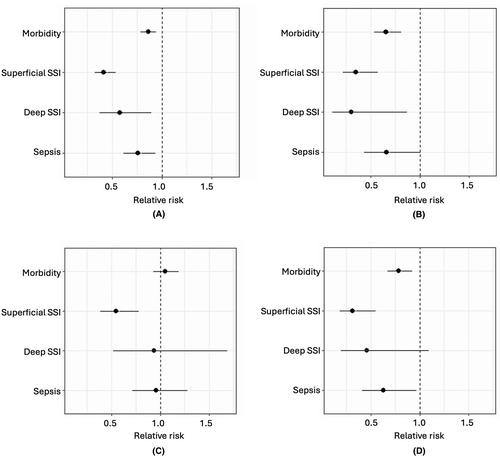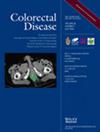Trends in surgical outcomes for Ileal pouch–anal anastomosis construction using a large nationwide database
Abstract
Aim
Ulcerative colitis (UC) affects over 3 million (1.3%) US adults, approximately 20% of whom will require surgery. Since it was first described in 1978, restorative proctocolectomy with ileal pouch–anal anastomosis (IPAA) has become the gold standard for patients requiring surgery, as well as for patients with familial adenomatous polyposis (FAP). In 1991 the laparoscopic approach to IPAA was introduced. The aim of this study was to evaluate the advances made in IPAA as minimally invasive surgery (MIS) has become more prevalent.
Method
The American College of Surgeons NSQIP database from 2005 to 2019 was used. Laparoscopic (MIS) and open cases of IPAA construction for UC or FAP were used. These patients were subdivided into three time point cohorts: early (2005–2009), middle (2010–2014) and recent (2015–2019). Univariable and multivariable analyses were performed to evaluate morbidity, mortality and hospital length of stay.
Results
A total of 6184 patients were analysed, and 2555 underwent MIS while 3629 underwent open surgery. After multivariable analysis, the MIS approach was associated with a lower risk of morbidity compared with open procedures [relative risk (RR) = 0.86, p < 0.0001, 95% CI 0.78–0.94], both in the early and recent periods [early period = RR = 0.66 (p < 0.0001), recent period RR = 0.78 (p = 0.0029)]. Superficial surgical site infection (SSI) was consistently lower in the MIS cohort across all three time periods. After multivariable analysis, the overall RR of superficial SSI in the MIS cohort was 0.41 (p < 0.0001) [early period RR = 0.35 (p < 0.0001), middle period RR = 0.55 (p = 0.0007), recent period RR = 0.31 (p < 0.0001)]. The RR of deep space SSI was decreased overall (RR = 0.58, p = 0.013, 95% CI 0.62–0.93), with the most significant effect occurring during the early period (RR = 0.30, p = 0.0260, 95% CI 0.105–0.868). Sepsis related to any infective aetiology was also decreased in the MIS cohort (RR = 0.76, p = 0.0093, 95% CI 0.62–0.93), especially in the recent time period (RR = 0.63, p = 0.0344, 95% CI 0.41–0.97). Furthermore, hospital length of stay was decreased in the MIS cohort (−0.287 days, p = 0.0170), with a greater difference occurring in the more recent cohort (−0.375 days, p = 0.0418).
Conclusion
With increasing utilization of minimally invasive techniques in IPAA creation there have been significant decreases in the rates of morbidity including decreasing rates of superficial and deep space SSI, as well as decreased hospital length of stay.


 求助内容:
求助内容: 应助结果提醒方式:
应助结果提醒方式:


